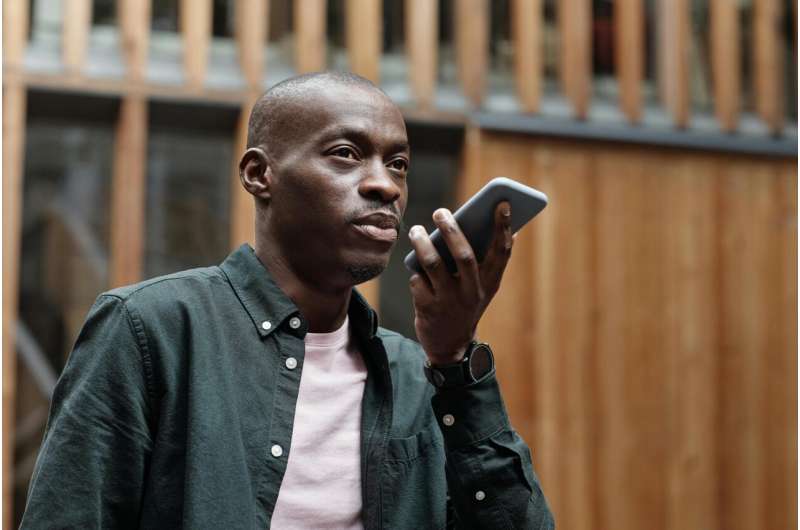This article has been reviewed according to Science X's editorial process and policies. Editors have highlighted the following attributes while ensuring the content's credibility:
fact-checked
trusted source
proofread
Why are people sending voice messages? Communications expert explains phenomena

Sometimes a text isn't enough, but a phone or video call would be too much.
How about a voice message?
Voice messaging has been available on some of the most popular apps for a decade now (it was introduced in WhatsApp and iMessage in 2013 and 2014, respectively), but people are reportedly now using the feature more than ever.
A 2023 survey conducted by Vox, in partnership with the market research company YouGov, found that approximately 62% of Americans said they have sent a voice message. Young people make up a large demographic of voice message users, according to the survey. Forty-three percent of 18- to 29-year-olds said they send a voice message at least once a week.
The Washington Post recently wrote a feature on the rising trend, making note that voice messages "have been added to almost every major social media and messaging platform."
Elizabeth Glowacki, a Northeastern University assistant teaching professor with dual appointments in Bouvé College of Health Sciences and the College of Arts, Media and Design, says the rise in usage makes sense.
Voice messages are more personal than regular texts, and can bring an added layer of authenticity, says Glowacki, whose research areas include messaging, communication and health.
"I think you can feel closer with someone when you can hear their voice as opposed to a text," she says. "What's interesting is that usually with a voice memo, it's a bit more spontaneous. Whereas with a text message, it's easier to just edit. In some ways, I like voice memos because they are a bit more natural and extemporaneous or impromptu."
They are also useful in keeping a record of a conversation, allowing people to listen to a person's vocal message later, she says.
But before you start sending them on a regular basis, it's definitely worth checking with the person or people you are speaking with about their preferred way to chat, Glowacki says.
"I think for voice memos to work or not, it's important that both the sender and receiver have the same preferences for communicating," Glowacki says. "So for example, if I'm someone who prefers text, and this person just sends me voice memos, that's going to be a larger barrier."
"Meeting people where they are—that's what savvy communicators do," she adds. "You recognize how the person that you're communicating with prefers to communicate and you try to mirror that."
Voice memos are great for sharing stories with lots of little details and nuances. Glowacki adds in some situations they might be easier to send than a text message, especially during times where you want to minimize screen time while you are walking and want to be more aware of your surroundings.
But they do have their shortcomings, as Vox highlights.
For one, the receiver might not be in a situation where they can drop everything and listen to an audio message. (To mitigate this issue, some messaging app companies have started adding auto transcription to voice messages.)
People can also make assumptions about a person based solely on their voice, Glowacki says.
"In my classes, we talk a lot about judgments people make about voices, and they are not always accurate or fair. For example, people with higher-pitched voices might not be taken as seriously. Unfortunately, this means women in some cases," she says.
Glowacki does have some concerns about what effect the rise of voice notes might have on the "overall flow of conversation."
"When you have a conversation with someone, there really is kind of a dance," she says. "You have to be mindful not to interrupt the person, and then you have to negotiate awkward pauses. I just wonder if these back-and-forth segmented voice memos take away some of this conversational adeptness that really good communicators possess."
But for as novel as this rising trend may seem, it does harken back to an older era, Glowacki says, recognizing that older generations are also using the feature.
In a way, "voice memos are just a rehashing of answering machines," she says.
"It's the cycle of life," she says. "We get back to our old ways even if it's a different platform or medium."
This story is republished courtesy of Northeastern Global News news.northeastern.edu.


















